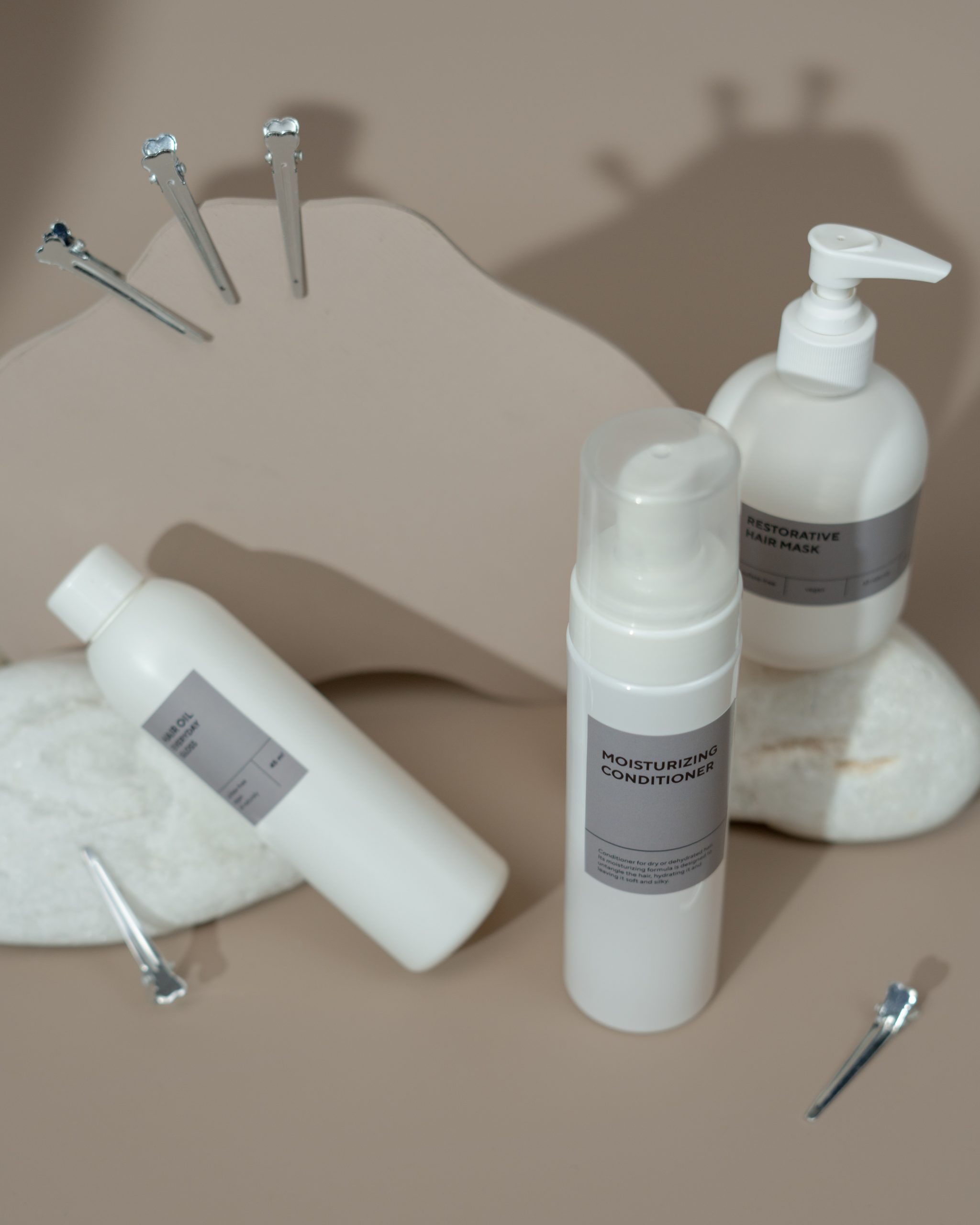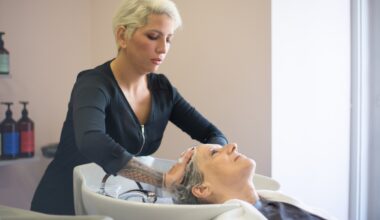Introduction:
In a world where natural beauty takes center stage, there’s a growing movement that’s transforming the way we think about hair color. Say goodbye to harsh chemicals and artificial additives; say hello to the organic hair color movement. As more people seek safer and more eco-friendly beauty alternatives, the quest for vibrant, chemical-free locks has become a top priority. In this journey, organic hair color has emerged as a shining beacon of hope, offering a spectrum of benefits that go beyond aesthetics.
As we delve into this organic revolution, we’ll explore the many facets of organic hair color, from its health and environmental advantages to the ingredients that make it possible. Discover how to choose the right organic hair color for your unique needs and whether you should opt for a DIY approach or seek professional assistance. We’ll also share valuable tips on maintaining your organic hair color’s radiance and introduce you to the flourishing world of organic hair salons. So, fasten your seatbelt, because we’re about to embark on a transformative journey to revamp your look naturally.
In the following sections, we’ll unveil the numerous benefits of organic hair color and guide you through the process of making the switch to a healthier and more sustainable hair coloring experience. Stay tuned as we navigate this exciting world of natural beauty.
The Benefits of Organic Hair Color:
A radiant mane is not just a symbol of beauty; it’s also an indicator of your overall health and well-being. As you journey into the realm of organic hair color, you’ll discover a multitude of advantages that extend far beyond aesthetics.
Health Benefits:
- Elimination of Harmful Chemicals: Traditional hair dyes often contain a cocktail of chemicals, including ammonia and parabens, which can have adverse effects on your scalp and overall health. Organic hair color products, on the other hand, are formulated without these harmful additives, reducing the risk of skin irritations and allergic reactions.
- Reduced Risk of Allergies and Scalp Irritations: Many individuals suffer from allergic reactions when exposed to synthetic hair dyes. Organic hair color, derived from natural sources, is gentler on the scalp and less likely to trigger allergies or irritations, making it a safer choice for those with sensitive skin.
Environmental Benefits:
- Sustainability and Eco-Friendliness: Conventional hair color production often involves the use of harsh chemicals and contributes to environmental pollution. Organic hair color manufacturers prioritize sustainability, using eco-friendly practices, renewable resources, and biodegradable packaging to minimize their carbon footprint.
- Reduced Water Pollution: Traditional hair dyes can contaminate water sources with harmful chemicals during the rinsing process. Organic hair color products are less likely to pollute waterways, contributing to a cleaner and more sustainable environment.
Aesthetic Benefits:
- Vibrant and Long-Lasting Color: Organic hair color may surprise you with its ability to deliver vibrant and long-lasting results. Many organic products offer a wide range of shades, ensuring you can achieve the look you desire without compromising on color intensity or duration.
- Enhanced Hair Texture: Organic hair color formulas often contain nourishing ingredients like henna, herbs, and essential oils that can improve hair texture and shine. Your hair not only looks great but also feels healthier and more manageable.
As you embrace the organic hair color movement, you’ll experience these incredible benefits firsthand. The shift to natural, chemical-free hair color isn’t just about following a trend; it’s about making a conscious choice for your health, the environment, and your hair’s vitality.
Understanding Organic Hair Color Ingredients:
Behind the allure of organic hair color lies a treasure trove of natural ingredients carefully selected to deliver stunning results without compromising on safety or sustainability. Let’s dive into the key components that make organic hair color a wise choice for those seeking a healthier and more eco-conscious approach to hair coloring.
Henna-Based Colors:
Henna, a time-honored natural dye derived from the leaves of the henna plant, is a cornerstone of organic hair color. It offers a range of shades, from rich reds to deep browns, making it a versatile choice for those seeking vibrant and lasting color. Henna not only tints the hair but also enhances its strength and shine. Moreover, it’s a well-known natural conditioner that leaves your locks looking and feeling luxurious.
Plant-Based Dyes:
Organic hair color often incorporates plant-based dyes from sources like indigo, chamomile, and walnut shells. These dyes provide a spectrum of natural shades and can be blended to achieve customized colors. Plant-based dyes are prized for their gentle nature and ability to deliver stunning, long-lasting results without the use of harsh chemicals.
Herbal Infusions:
Herbal infusions, such as those derived from calendula, rosemary, and lavender, are frequently found in organic hair color formulations. These infusions not only add aromatic depth to the product but also offer nourishing and soothing benefits for the scalp and hair. They promote hair health and contribute to the overall experience of using organic hair color.
Essential Oils:
Essential oils, such as lavender, tea tree, and rosemary oils, are often used to enhance the scent and therapeutic qualities of organic hair color products. These oils not only create a delightful aroma but also contribute to scalp health, offering a soothing and relaxing experience during application.
Understanding the ingredients that go into organic hair color empowers you to make informed choices when selecting the right product for your needs. Whether you’re looking for vibrant reds, earthy browns, or other natural shades, these ingredients work harmoniously to deliver the color you desire while nourishing and caring for your hair.
How to Choose the Right Organic Hair Color:
Choosing the perfect organic hair color isn’t just about picking a shade that catches your eye. It involves a thoughtful consideration of various factors to ensure that the color suits your hair type, complements your skin tone, and aligns with your overall style. Here’s a comprehensive guide to help you make the right choice:
Hair Type and Texture Considerations:
- Porosity: Determine your hair’s porosity, which refers to its ability to absorb and retain moisture. Organic hair colors may behave differently on highly porous hair, so understanding your hair’s porosity can help you predict the outcome. Highly porous hair may absorb color more quickly and intensely.
- Thickness: Consider your hair’s thickness. Thicker hair may require more product for even coverage, so keep this in mind when choosing an organic hair color kit.
- Texture: Hair texture matters. Curly and coarse hair may absorb color differently than straight or fine hair. Consult with a professional or the product manufacturer if you’re unsure how the organic color will interact with your specific hair texture.
Shade Selection:
- Skin Tone: Your skin tone plays a significant role in determining the most flattering hair color. Cool-toned individuals often look best with shades like ash brown or platinum blonde, while warm-toned individuals may prefer golden hues like honey blonde or chestnut brown. Consider consulting a colorist for personalized advice.
- Natural Color: If you’re looking for a subtle change or want to maintain a color close to your natural shade, opt for an organic hair color that matches your current color or is a shade or two lighter or darker.
- Color Chart: Many organic hair color brands provide color charts to help you visualize the results. These charts display swatches of different shades and can be a helpful reference when selecting your desired color.
Allergies and Sensitivities:
- Patch Test: Always perform a patch test before applying any hair color, even if it’s organic. Apply a small amount of the product to a discreet area of your skin to check for any adverse reactions, such as redness or itching.
- Ingredient Review: If you have known allergies or sensitivities to certain natural ingredients, carefully review the product’s ingredient list to ensure it doesn’t contain anything that may trigger a reaction.
Reading Product Labels:
- Certifications: Look for organic hair color products with reputable certifications, such as USDA Organic or EcoCert. These certifications ensure that the product meets strict organic and sustainability standards.
- Instructions: Read and follow the product’s instructions carefully. Each organic hair color product may have specific application and processing times that must be adhered to for optimal results.
Choosing the right organic hair color involves a blend of science and art, but with careful consideration of these factors, you can confidently select a shade that enhances your natural beauty while maintaining a commitment to healthier and more sustainable hair coloring.
DIY vs. Professional Application:
Now that you’ve chosen the perfect organic hair color, the next decision you’ll face is whether to take the DIY approach or enlist the expertise of a professional colorist. Both options have their merits, and the choice depends on your preferences, experience, and desired results.
Pros and Cons of At-Home Application:
Pros:
- Convenience: DIY application allows you to color your hair at your own pace and in the comfort of your home. You can schedule it to fit your busy lifestyle.
- Cost-Efficiency: At-home hair coloring is generally more budget-friendly than salon services. Organic hair color kits are readily available and often cost less than professional salon treatments.
- Customization: You have complete control over the application process, enabling you to achieve the exact shade and look you desire.
- Privacy: Some individuals prefer the privacy of home coloring, as it eliminates the need for salon visits and allows for a more personal experience.
Cons:
- Learning Curve: DIY hair coloring requires a certain level of skill and knowledge. If you’re new to it, there may be a learning curve, and mistakes can occur.
- Risk of Uneven Color: Achieving even color distribution can be challenging, especially for those with longer or thicker hair. Uneven color is a common issue with at-home coloring.
- Limited Expertise: You may lack the expertise and tools that professional colorists possess, making it more challenging to correct mistakes or achieve complex color transformations.
Benefits of Professional Salon Services:
Pros:
- Expertise: Professional colorists have extensive training and experience in hair coloring techniques. They can provide expert advice and ensure even and consistent results.
- Customized Solutions: Colorists can tailor the color to your unique needs and preferences, offering a level of customization that is hard to achieve at home.
- Quality Products: Salons often use high-quality organic hair color products and have access to a broader range of shades and formulations.
- Precision: Professional application minimizes the risk of uneven color, ensuring a polished and professional look.
Cons:
- Cost: Salon services can be more expensive than DIY options, as they include the expertise of a professional colorist.
- Scheduling: Appointments may require scheduling and travel to the salon, which may not be as convenient as coloring at home.
- Time: Salon appointments may take longer than a DIY application, depending on the complexity of the coloring process.
Ultimately, the decision between DIY and professional application depends on your comfort level, budget, and desired outcome. If you’re confident in your coloring abilities and seek a cost-effective solution, DIY may be the way to go. However, for complex color transformations or if you value the expertise of a professional, visiting a salon is a wise choice.
DIY vs. Professional Application:
Now that you’ve chosen the perfect organic hair color, the next decision you’ll face is whether to take the DIY approach or enlist the expertise of a professional colorist. Both options have their merits, and the choice depends on your preferences, experience, and desired results.
Pros and Cons of At-Home Application:
Pros:
- Convenience: DIY application allows you to color your hair at your own pace and in the comfort of your home. You can schedule it to fit your busy lifestyle.
- Cost-Efficiency: At-home hair coloring is generally more budget-friendly than salon services. Organic hair color kits are readily available and often cost less than professional salon treatments.
- Customization: You have complete control over the application process, enabling you to achieve the exact shade and look you desire.
- Privacy: Some individuals prefer the privacy of home coloring, as it eliminates the need for salon visits and allows for a more personal experience.
Cons:
- Learning Curve: DIY hair coloring requires a certain level of skill and knowledge. If you’re new to it, there may be a learning curve, and mistakes can occur.
- Risk of Uneven Color: Achieving even color distribution can be challenging, especially for those with longer or thicker hair. Uneven color is a common issue with at-home coloring.
- Limited Expertise: You may lack the expertise and tools that professional colorists possess, making it more challenging to correct mistakes or achieve complex color transformations.
Benefits of Professional Salon Services:
Pros:
- Expertise: Professional colorists have extensive training and experience in hair coloring techniques. They can provide expert advice and ensure even and consistent results.
- Customized Solutions: Colorists can tailor the color to your unique needs and preferences, offering a level of customization that is hard to achieve at home.
- Quality Products: Salons often use high-quality organic hair color products and have access to a broader range of shades and formulations.
- Precision: Professional application minimizes the risk of uneven color, ensuring a polished and professional look.
Cons:
- Cost: Salon services can be more expensive than DIY options, as they include the expertise of a professional colorist.
- Scheduling: Appointments may require scheduling and travel to the salon, which may not be as convenient as coloring at home.
- Time: Salon appointments may take longer than a DIY application, depending on the complexity of the coloring process.
Ultimately, the decision between DIY and professional application depends on your comfort level, budget, and desired outcome. If you’re confident in your coloring abilities and seek a cost-effective solution, DIY may be the way to go. However, for complex color transformations or if you value the expertise of a professional, visiting a salon is a wise choice.
The Growing Popularity of Organic Hair Salons:
Across the globe, individuals are increasingly seeking alternatives to conventional beauty practices, and the trend extends to hair care. Enter the flourishing world of organic hair salons, where health-conscious clients can experience the benefits of organic hair color and holistic beauty treatments. Here, we’ll explore the rising popularity of these salons and share some success stories and customer experiences that showcase the transformative power of going au naturel.
Showcase Success Stories:
- Radiant Transformations: Organic hair salons have witnessed remarkable transformations, where clients have not only achieved their desired hair color but also experienced improved hair health. Success stories often feature clients who have transitioned from conventional dyes to organic options, reporting softer, shinier, and healthier locks.
- Allergen-Free Beauty: Clients with sensitivities and allergies to traditional hair dyes have found solace in organic hair salons. These establishments offer a haven for individuals seeking beauty treatments without the fear of adverse reactions.
Highlight Customer Experiences:
- Relaxing Atmosphere: Organic hair salons often prioritize creating a relaxing and nurturing environment. Clients frequently praise the soothing ambiance and personalized care they receive during their visits.
- Eco-Friendly Practices: Many organic hair salons go the extra mile to adopt eco-friendly practices. Customers appreciate the commitment to sustainability, from the use of organic products to energy-efficient lighting and recycling initiatives.
- Holistic Approach: Beyond hair coloring, organic hair salons often offer a holistic approach to beauty. Services may include scalp treatments, hair masks, and massages, providing a comprehensive and rejuvenating experience.
- Educational Initiatives: Some organic hair salons take the time to educate clients about the benefits of organic hair care and the importance of making sustainable choices. Clients leave not only looking great but also feeling empowered to make healthier choices for their hair and the environment.
As the demand for organic and eco-conscious beauty practices continues to rise, organic hair salons are poised to play a pivotal role in transforming the beauty industry. Their commitment to health, sustainability, and exceptional customer experiences is driving a paradigm shift in how we approach hair care and beauty.
Conclusion:
In the pursuit of beauty and self-expression, the organic hair color movement stands as a beacon of hope, illuminating the path to healthier, more sustainable, and stunning hair transformations. As we reach the end of our journey into the world of organic hair color, let’s recap the key advantages and experiences that make this movement worth embracing.
The Organic Advantage:
- Health Benefits: Organic hair color eliminates harmful chemicals, reducing the risk of allergies and scalp irritations while prioritizing your well-being.
- Environmental Responsibility: By choosing organic hair color, you contribute to sustainability and reduce water pollution, making a positive impact on our planet.
- Aesthetic Brilliance: Experience vibrant and long-lasting color along with enhanced hair texture, all achieved through the power of natural ingredients.
The Ingredients That Matter:
- Henna-Based Colors: Henna, with its rich history and nourishing properties, serves as the foundation of organic hair color, offering vibrant hues and healthy locks.
- Plant-Based Dyes: Ingredients like indigo and chamomile complement henna, providing a diverse palette of natural shades.
- Herbal Infusions and Essential Oils: Herbal infusions and essential oils not only enhance the aroma but also contribute to hair health and overall satisfaction.
Making the Right Choice:
- Consider your hair type, thickness, and texture when choosing your shade.
- Factor in your skin tone and natural color to achieve the perfect match.
- Always perform a patch test and review product labels to ensure safety.
- Opt for certified organic products that meet rigorous standards.
DIY vs. Professional Assistance:
- Weigh the pros and cons of DIY application for convenience and budget-friendliness.
- Professional salon services offer expertise, customization, and precision, albeit at a higher cost.
- The choice between DIY and professional application depends on your preferences and desired results.
Maintenance for Lasting Beauty:
- Gentle hair care routines, including color-safe products and cool water, help preserve your color.
- Be mindful of styling products and sun exposure to prevent color fading.
- Schedule regular touch-ups and trims to keep your look fresh and vibrant.
The Rise of Organic Hair Salons:
- Organic hair salons showcase success stories and highlight customer experiences that testify to the power of going organic.
- Relaxing atmospheres, eco-friendly practices, holistic approaches, and educational initiatives set these salons apart.
As you embark on your own journey into the world of organic hair color, remember that it’s not just a trend; it’s a conscious choice that benefits your health, the environment, and your hair’s radiance. Embrace the transformation, and let your locks shine naturally.
We hope this exploration has illuminated the path to healthier and more sustainable hair color choices. Here’s to a future filled with vibrant and naturally beautiful locks, courtesy of the organic hair color movement.






